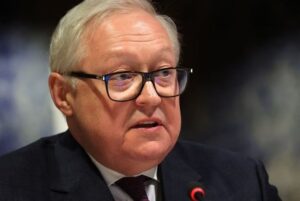A nuclear doctrine defines a nation’s policies regarding the use of nuclear weapons, shaping global security dynamics and influencing international relations. Russia’s nuclear doctrine has recently come under significant attention as the country considers revising its policies in response to escalating tensions with the West.

Russia’s Nuclear Doctrine: An Overview
Russia’s current nuclear doctrine, established by President Vladimir Putin in 2020, outlines specific scenarios where the use of nuclear weapons is deemed justifiable. According to this doctrine, Russia may deploy nuclear weapons if the country faces a nuclear attack from an adversary or if a conventional attack threatens the very existence of the Russian state.
Why Russia is Considering Changes
Recent developments have led Russia to reconsider its nuclear strategy. Deputy Foreign Minister Sergei Ryabkov announced that changes to the doctrine are being considered due to what Russia perceives as escalating threats from Western nations amid the ongoing conflict in Ukraine. This shift reflects Russia’s concerns about the West’s growing military support for Ukraine, which Russia views as a direct challenge to its national security.
Implications of Potential Changes
Adjusting the nuclear doctrine could have profound implications for global security. Some Russian military analysts advocate for lowering the threshold for nuclear weapon use, arguing that this might deter Western countries from further involvement in Ukraine. Such changes would signal a more aggressive stance, potentially increasing the risk of nuclear conflict.
Read More :- How International Diplomacy Averted a Potential Nuclear Crisis in Ukraine
However, Russia might also choose to make subtle changes to its doctrine, perhaps by keeping specific details secret. This would serve as a warning to the West while maintaining a level of ambiguity that could prevent further escalation. Keeping the doctrine vague might also help Russia avoid alienating countries that have remained neutral in the conflict, such as China and India.
Conclusion
Russia’s consideration of changes to its nuclear doctrine is a significant development that underscores the increasing tensions between Russia and the West. As global powers navigate these changes, the world watches closely, understanding that shifts in nuclear policies can have far-reaching consequences for international stability and peace.